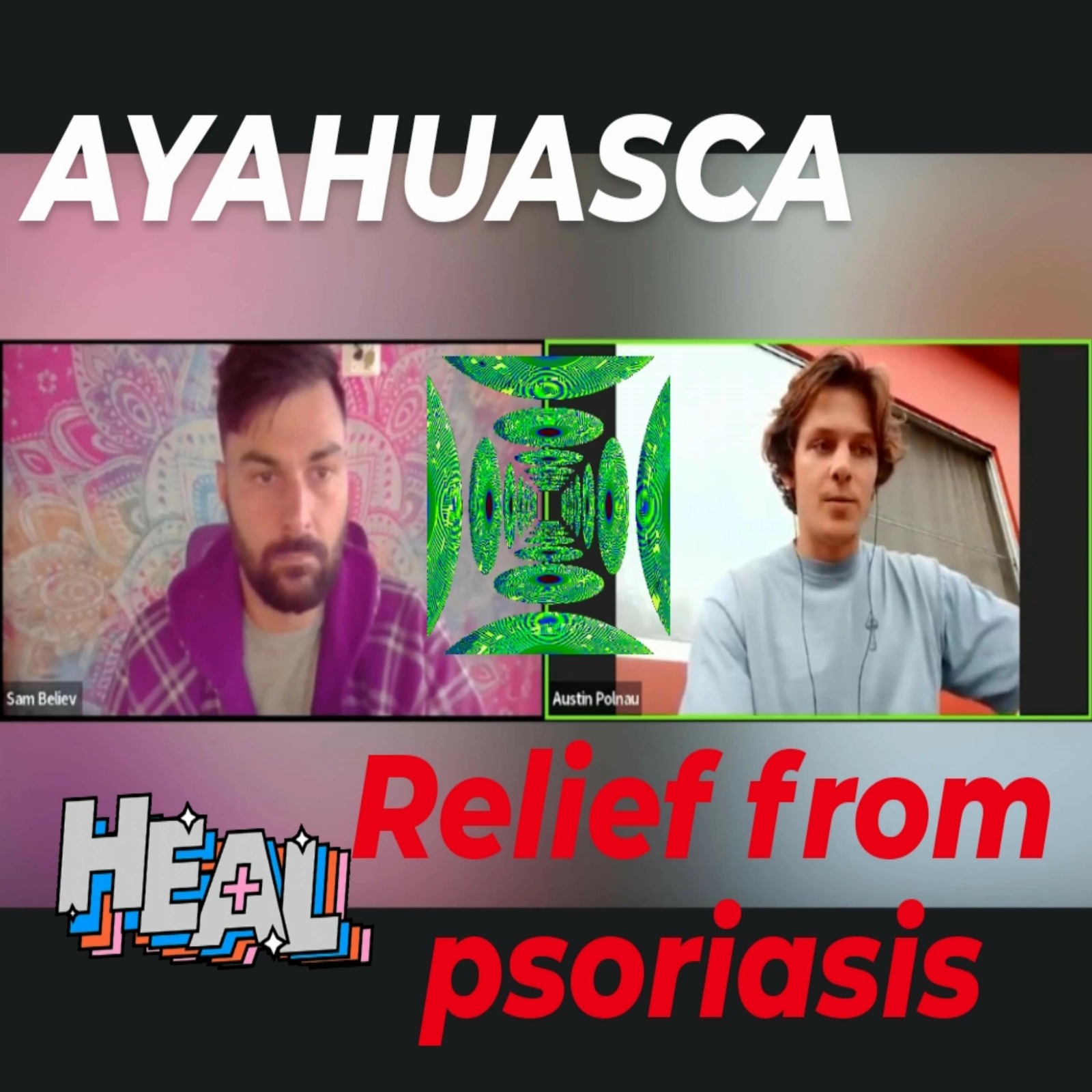In a powerful episode of the Ayahuasca Podcast, host Sam Believ sits down with Austin, a retreat participant who traveled to the Colombian jungle seeking relief from a stubborn case of psoriasis. What unfolds is more than a story about clearing the skin — it’s about the deeper connection between emotion, belief, and the body’s natural intelligence.
From Autoimmune Frustration to Open Intention
Austin begins by describing years of frustration with psoriasis, an autoimmune skin condition that causes inflammation and visible irritation. He had tried everything — special diets, gut-cleansing protocols, probiotics, supplements, and even medical treatments. Nothing seemed to last.
“I’d cleared it out once,” he says, “but then the bacteria imbalance, years of drinking and late nights — it all stacked up.” Eventually, he realized he wasn’t just fighting a skin condition; he was trapped in a cycle of control and self-criticism.
His intention for the retreat was simple: to explore, not to fix. “I had no idea if it would work,” he admits. “I just wanted to see what would happen.” That openness would become the foundation for a surprising transformation.
The Ceremony That Changes More Than Skin
At the retreat, Austin reports not only changes to his psoriasis but also to his emotional state and self-image. “I felt awake for the first time in years,” he recalls. After several ceremonies, he noticed that the red, inflamed areas of his skin began visibly calming. “For the past three weeks, the regeneration rate has been amazing,” he says.
Yet the biggest shift came from within. “You’re beautiful on the inside,” he reflects, “and even if your skin isn’t perfectly clear, that’s totally okay.” This acceptance — of his body, his imperfection, and his humanity — became a key part of his healing.
He emphasizes that ayahuasca isn’t a quick fix or magic potion. “It’s not just drink this and go,” he says. “There’s a process.” The medicine opened the door, but it was his attitude and follow-through that carried him through it.
Mind–Body Healing: Autoimmunity as a Conversation
Austin offers a striking reframe for chronic illness. He sees autoimmune conditions not simply as the body “malfunctioning,” but as the body trying to communicate. “When your body attacks itself,” he says, “you really need to talk to your brain about it.”
In his experience, ayahuasca allowed that dialogue to unfold — not through logic or words, but through feeling and insight. He realized that the roots of his condition weren’t only physical but emotional and relational. Stress, guilt, self-judgment, and unresolved tension all contributed to the inner imbalance.
Ayahuasca, in that sense, became a mirror — helping him see how deeply his emotions affected his biology. Once he acknowledged that link, the body responded.
Integration: The Real Work After the Ceremony
Austin calls the retreat “the hardest week of my life — but also the best.” The real transformation, however, began afterward. He cleaned his diet, focused on gut health, practiced gratitude, and repaired relationships. He even reached out to family members, expressing love instead of holding resentment.
“I just feel at peace now,” he says. “At peace with myself and with the people around me.”
For him, integration isn’t optional — it’s the continuation of the healing process that ayahuasca starts. Without that commitment, he believes, the physical results might fade. With it, the effects compound.
What This Story Suggests
Austin’s journey doesn’t claim to be a clinical cure — it’s a personal story of transformation. But it does highlight a few powerful principles:
- Autoimmune and chronic conditions often carry emotional or energetic roots that deserve attention.
- Psychedelic-assisted healing can create a space for insight, acceptance, and emotional release that traditional medicine rarely reaches.
- True change requires integration — lifestyle shifts, self-care, and relational healing.
- Acceptance, not resistance, can be the turning point for physical improvement.
- The mind and body are not separate; when one heals, the other follows.
A Balanced Reflection
Austin’s story shows that ayahuasca can catalyze profound shifts in how we relate to our bodies. His psoriasis visibly improved, but more importantly, his relationship to himself transformed. The key wasn’t perfection — it was peace.
Still, both he and Sam emphasize that this is not a shortcut or a universal remedy. “It’s a process,” Austin repeats. Healing unfolds over time, requiring honesty, patience, and a willingness to look inward.
For anyone struggling with chronic physical symptoms, Austin’s journey offers hope. It reminds us that healing is not always about eradicating symptoms but about reconnecting with the wisdom of the body and the truth of the heart. When those two align, even long-standing patterns can begin to release.
Based on the Ayahuasca Podcast episode “Can Ayahuasca Help with Psoriasis?” with Sam Believ and Austin.

Sam Believ is the founder and CEO of LaWayra Ayahuasca Retreat, the best-rated Ayahuasca retreat in South America, with over 520 five-star Google reviews and an overall rating of 5 stars. After his life was transformed by Ayahuasca, he dedicated himself to spreading awareness about this ancestral medicine to help address the mental health crisis. Sam is committed to making Ayahuasca retreats affordable, accessible, and authentic, with a focus on care, integration, and the involvement of indigenous shamans. He is also the host of the Ayahuasca Podcast.


